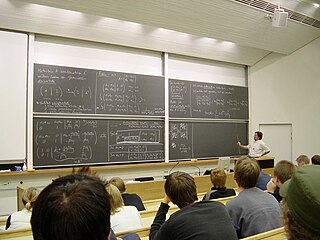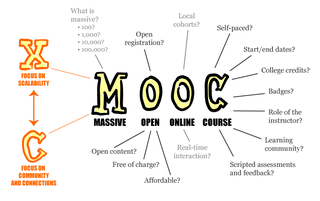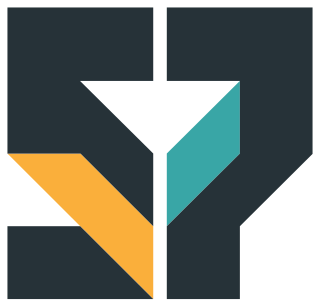Related Research Articles
The Leaving Certificate Examination, commonly referred to as the Leaving Cert, is the final exam of the Irish secondary school system and the university matriculation examination in Ireland. It takes a minimum of two years' preparation, but an optional Transition Year means that for those students it takes place three years after the Junior Certificate Examination. These years are referred to collectively as "The Senior Cycle." Most students taking the examination are aged 16–20; in excess of eighty percent of this group undertake the exam. The Examination is overseen by the State Examinations Commission. The Leaving Certificate Examinations are taken annually by approximately 55,000 students.

In contemporary education, mathematics education is the practice of teaching and learning mathematics, along with the associated scholarly research.

Problem-based learning (PBL) is a student-centered pedagogy in which students learn about a subject through the experience of solving an open-ended problem found in trigger material. The PBL process does not focus on problem solving with a defined solution, but it allows for the development of other desirable skills and attributes. This includes knowledge acquisition, enhanced group collaboration and communication. The PBL process was developed for medical education and has since been broadened in applications for other programs of learning. The process allows for learners to develop skills used for their future practice. It enhances critical appraisal, literature retrieval and encourages ongoing learning within a team environment.

The Illinois Mathematics and Science Academy, or IMSA, is a three-year residential public secondary education institution in Aurora, Illinois, United States, with an enrollment of approximately 650 students.
In physics or engineering education, a Fermi problem, Fermi quiz, Fermi question, Fermi estimate, order-of-magnitude problem, order-of-magnitude estimate, or order estimation is an estimation problem designed to teach dimensional analysis or approximation of extreme scientific calculations, and such a problem is usually a back-of-the-envelope calculation. The estimation technique is named after physicist Enrico Fermi as he was known for his ability to make good approximate calculations with little or no actual data. Fermi problems typically involve making justified guesses about quantities and their variance or lower and upper bounds. In some cases, order-of-magnitude estimates can also be derived using dimensional analysis.

The Mathematical Tripos is the mathematics course that is taught in the Faculty of Mathematics at the University of Cambridge. It is the oldest Tripos examined at the University.
In US education terminology, rubric is "a scoring guide used to evaluate the quality of students' constructed responses". Put simply, it is a set of criteria for grading assignments. Rubrics usually contain evaluative criteria, quality definitions for those criteria at particular levels of achievement, and a scoring strategy. They are often presented in table format and can be used by teachers when marking, and by students when planning their work.
A virtual university provides higher education programs through electronic media, typically the Internet. Some are bricks-and-mortar institutions that provide online learning as part of their extended university courses while others solely offer online courses. They are regarded as a form of distance education. The goal of virtual universities is to provide access to the part of the population who would not be able to attend a physical campus, for reasons such as distance—in which students live too far from a physical campus to attend regular classes; and the need for flexibility—some students need the flexibility to study at home whenever it is convenient for them to do so.
The Pennsylvania Governor's School for the Sciences (PGSS) is now the only remaining part of the Pennsylvania Governor's Schools of Excellence, a group of five-week summer programs for gifted and highly intelligent high-school students in the state of Pennsylvania. Carnegie Mellon University in Pittsburgh has hosted the program since its inception in 1982. Most recently, it has been directed by Physics Professor Dr. Barry Luokkala. Participants are required to be Pennsylvania high school students between their junior and senior years and are required to live in the dormitories for the full five weeks of the program. Admission is very competitive - approximately 500 of the most scientifically gifted students in the state compete for 56 to 60 slots in the program. The aim of PGSS is to promote interest in science rather than to advance students' knowledge in a specific area. The curriculum includes five "core" courses in Biology, Chemistry, Computer Science, Mathematics and Physics, and numerous electives. In addition to taking classes, students are required to participate in a lab course and a research-style team project. The emphasis is on cooperation, rather than competition - students are encouraged to both collaborate with other students on academic work and to interact socially. The Residence Life staff provides a number of structured social events to foster friendship and teamwork. There is at least one event per day and is advertised on the social calendar in the dorm lobby. For many students, the social development gained from the program rivals the scientific knowledge they acquire. The students leave the program with a strong bond; most attend an organized reunion the following year after the 4th week of the program.
A course evaluation is a paper or electronic questionnaire, which requires a written or selected response answer to a series of questions in order to evaluate the instruction of a given course. The term may also refer to the completed survey form or a summary of responses to questionnaires.
Authentic assessment is the measurement of "intellectual accomplishments that are worthwhile, significant, and meaningful," as contrasted with multiple-choice tests. Authentic assessment can be devised by the teacher, or in collaboration with the student by engaging student voice. When applying authentic assessment to student learning and achievement, a teacher applies criteria related to “construction of knowledge, disciplined inquiry, and the value of achievement beyond the school.”
Aplia Inc. is an educational technology company founded in 2000 by Stanford University professor Paul Romer that offers online homework products geared toward college-level courses. In March 2007 Cengage Learning acquired Aplia Inc. Aplia was based in Belmont, California until March 2014, when it relocated to Cengage Learning's new Mission Bay, San Francisco office.

Environmental engineering science (EES) is a multidisciplinary field of engineering science that combines the biological, chemical and physical sciences with the field of engineering. This major traditionally requires the student to take basic engineering classes in fields such as thermodynamics, advanced math, computer modeling and simulation and technical classes in subjects such as statics, mechanics, hydrology, and fluid dynamics. As the student progresses, the upper division elective classes define a specific field of study for the student with a choice in a range of science, technology and engineering related classes.
Tsinghua University School of Economics and Management, is the business school of Tsinghua University in Beijing, China. The school offers undergraduate, master’s, doctoral, and many executive education programs, with a total enrollment of more than 3,000 students.
Lyryx Learning (Lyryx) is an educational software company offering open educational resources (OERs) paired with online homework for undergraduate introductory courses in Mathematics & Statistics and Business & Economics.

A massive open online course is an online course aimed at unlimited participation and open access via the Web. In addition to traditional course materials, such as filmed lectures, readings, and problem sets, many MOOCs provide interactive courses with user forums or social media discussions to support community interactions among students, professors, and teaching assistants (TAs), as well as immediate feedback to quick quizzes and assignments. MOOCs are a widely researched development in distance education, first introduced in 2008, that emerged as a popular mode of learning in 2012.

A flipped classroom is an instructional strategy and a type of blended learning, which aims to increase student engagement and learning by having students complete readings at their home and work on live problem-solving during class time.

Chandralekha Singh is an Indian-American physicist who is a professor in the Department of Physics and Astronomy at the University of Pittsburgh and the Founding Director of the Discipline-Based Science Education Research Center.
Physics Correspondence Seminar (FKS) is a correspondence competition primarily aimed at high school students in Slovakia. Its purpose is to provide outlet for talented individuals by creating challenging problems and organising academic camps. The seminar organisers are mostly undergraduate students from FMFI, Comenius University, Slovakia and other distinguished universities, such Cambridge University. FKS is the part of Trojsten, an NGO supporting educational activities in Slovakia in the field of mathematics, physics and computer science.

Moscow State School 57 is a public school located in the Khamovniki District of Moscow, Russia. The school was founded in 1877 and is best known for its specialized secondary program in mathematics and its alumni.
References
- ↑ https://mitadmissions.org/blogs/entry/the-process-of-psetting/
- ↑ Curzan, Anne; Lisa Damour (2006). First Day to Final Grade: A Graduate Student's Guide to Teaching. University of Michigan Press. pp. 65–66. ISBN 0-472-03188-0.
- 1 2 3 Course Policy for a physics course at the University of Virginia Archived 2007-12-13 at the Wayback Machine
- 1 2 Caltech quantum mechanics course page Archived 2008-06-28 at the Wayback Machine
- 1 2 3 Ohio State University economics syllabus
- 1 2 3 4 5 James Bradshaw (March 12, 2008). "Ryerson student cheered at expulsion hearing". The Globe and Mail . Retrieved June 10, 2008.
- 1 2 Louise Brown (March 6, 2008). "Student faces Facebook consequences". Toronto Star . Retrieved June 10, 2008.
- ↑ "T.O. student won't be expelled over Facebook group". CTV News. March 18, 2008. Retrieved June 10, 2008.